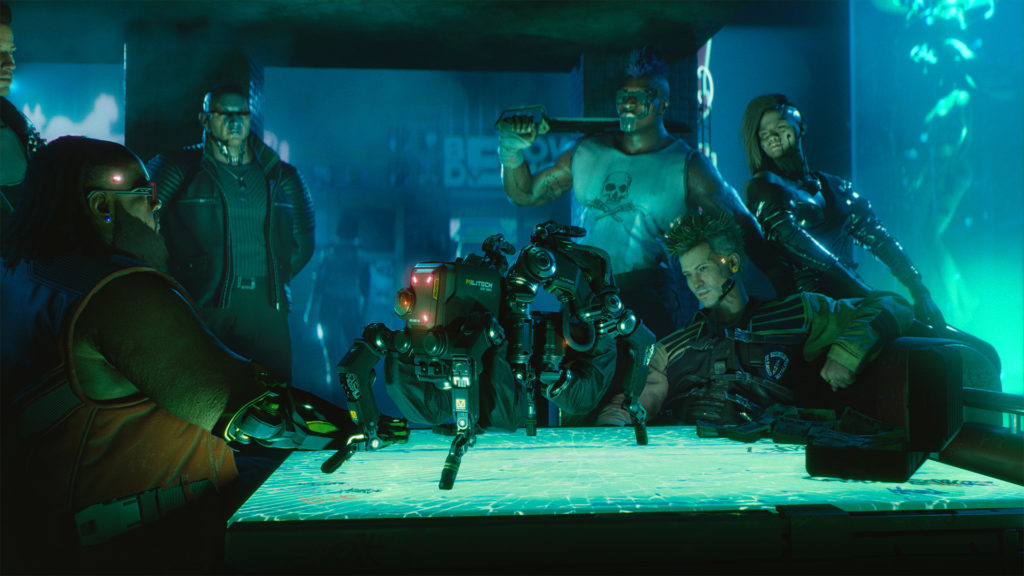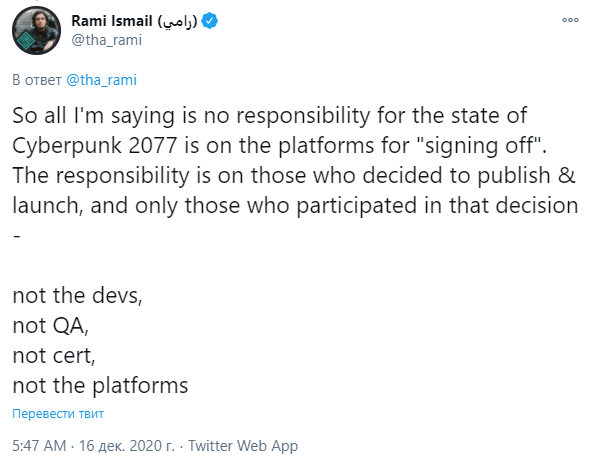A lot of noise has been raised around the problematic release of Cyberpunk 2077. The gaming community blamed the title’s shortcomings on its developers, testers and, eventually, the owners of the platforms that certified the game — Sony and Microsoft. Rami Ismail, a well-known indie developer, explained how the certification process goes and why Sony and Microsoft should not be responsible for the shortcomings of Cyberpunk 2077.

This morning Ismail wrote a detailed thread on Twitter, in which he covered all the details of console certification.
The main thing from the messages:
- the passed certification is not a kind of “quality mark”. It does not guarantee that the game will be good and interesting. All that the certificate really promises is that the game does not cause the console to break down, and also does not violate the rules and trademarks;
- the certification rules don’t follow things like “textures take five seconds longer to load” or “a character sticks out of a car in a T-pose and without pants”;
- but they have such items as: “do not download critical data behind the scenes”, “warn if the Internet connection is lost” or “display the correct labels on the buttons”.
- the list itself with rules and recommendations is gigantic, so sometimes developers wait weeks for an answer — whether their game corresponds to all the points or not;
- in some cases, platforms can forgive minor violations of the rules. Their decision depends on the game, the situation, the degree of urgency of obtaining a certificate and the developer’s promises to fix the flaws in the patch of the first day;
- but sometimes the refusal of certification can be obtained for not the most logical things. For example, incorrect labeling of buttons by 100% will lead to failure;
- after the developer has corrected all violations (or justified them), it is necessary to send the game for review again. If everything went well, you can start announcing the release date;
- patches should go through exactly the same procedure.
In conclusion, Ismail stressed that all responsibility for the quality of Cyberpunk 2077 at the start lay with those who decided to bring the project to market, and not on platforms and anyone else. The game could pass certification even if it was full of internal bugs. At the same time, it was the publisher who had to keep track of whether the certified title turned out to be playable or not yet.

